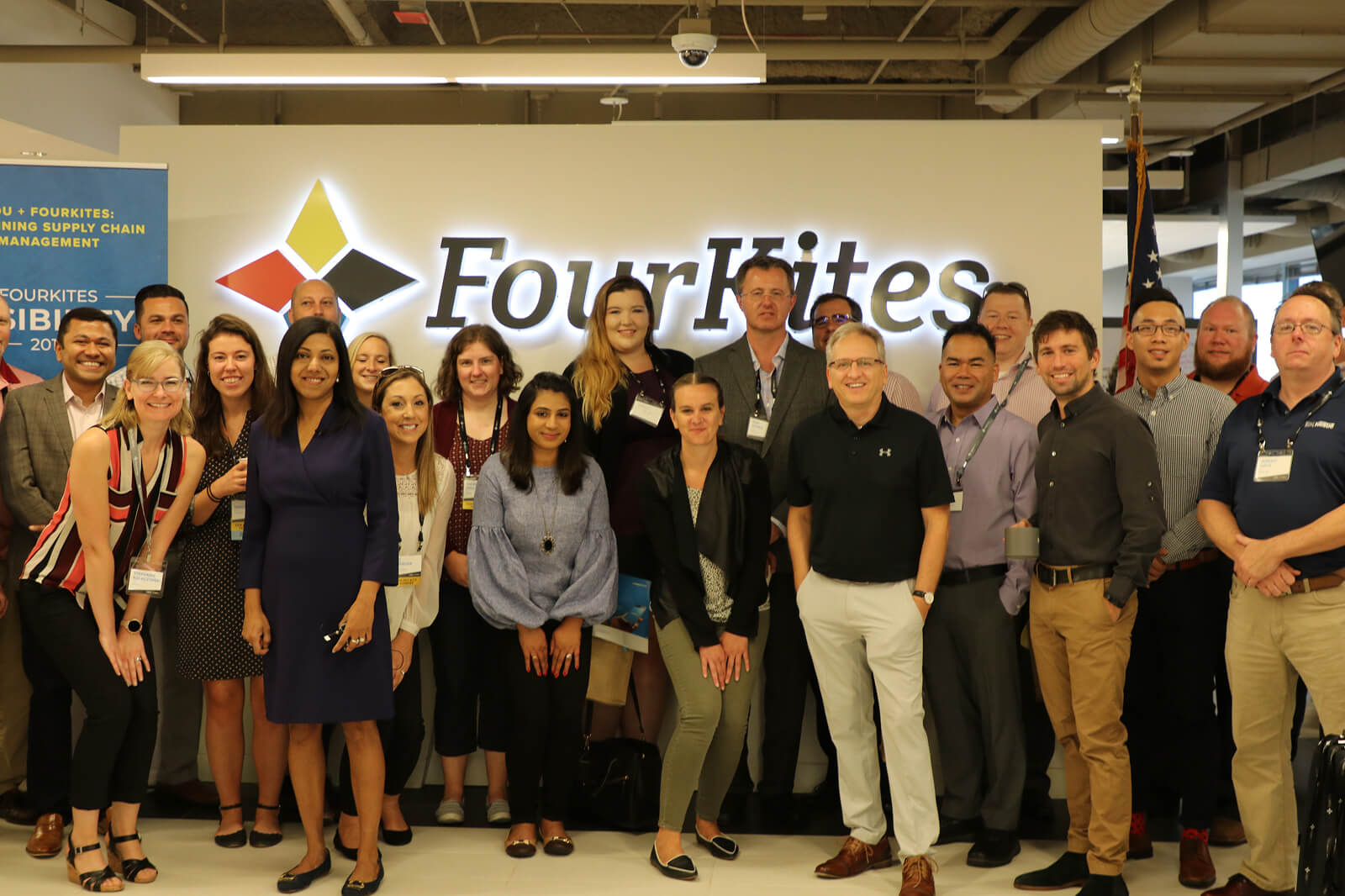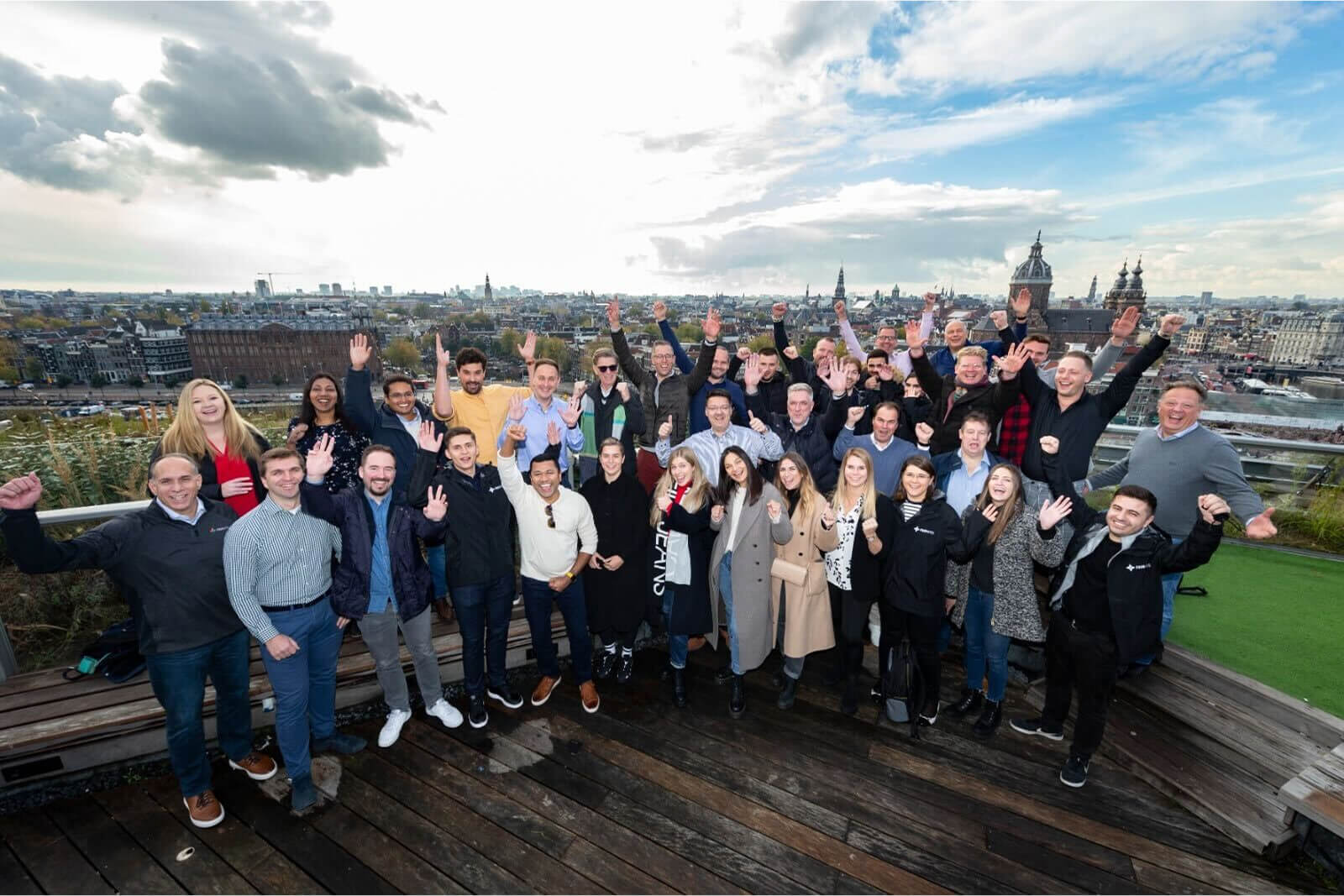
It’s staggering to consider that FourKites has been helping customers optimize their supply chains for ten years. The company that we started when I was right out of business school — just as the ELD mandate, Walmart’s OTIF mandate, and other seismic shifts were reshaping the industry — has partnered with Fortune 500 companies, broken barriers in technology, and always evolved to meet the most pressing supply chain challenges of the day.
It’s a milestone that makes me not only incredibly proud, but also immensely grateful — to my mentors, colleagues, partners, customers, and even competitors. Each has shaped this journey in meaningful ways. And it’s a journey I wouldn’t change for anything.
One of the most enduring lessons we’ve learned these past ten years – one that’s just as relevant today as it was in the early days of FourKites’ journey – is the power of storytelling. I vividly remember a conversation I had early on with Tim Krauskopf, a seasoned entrepreneur and co-founder of Spyglass, the company behind what would become Internet Explorer. After hearing our early pitch, Tim’s advice was simple but profound: a strong pitch is important, but a compelling, clear, and relatable story is what truly resonates. Many startups have failed because they didn’t take the time to establish that story.
That insight will stay with me forever. Whether we’re launching a single product or an entire company, our ability to articulate what it solves, who it serves, how it’s different, and why it matters is what cuts through the noise. More than a marketing tactic, great storytelling is a strategic business necessity — and it’s been essential to FourKites’ success.
If every company has a story, ours has been marked by great highs, but also shaped by a few bumps along the way. Time and time again, these challenges have been opportunities for us to learn, to lean on our community, and to come out stronger on the other side.
Here’s an early testament to the power of community. It was 2016, and we were in the early days of closing our fourth customer — our first million-dollar deal. It was a pivotal moment for us. But right in the middle of tech and security reviews, a devastating flood hit Chennai, India, where many of our engineers were based. Water filled the first floor of our building, and our team couldn’t even get to work. We were scrambling — not just to meet the demands of a high-stakes deal, but also to keep our people safe.
That’s when one of our investors half-jokingly suggested sending a helicopter to evacuate and relocate our engineers so we could close the deal. It was a wild idea, but it reflected something deeper: we had people in our corner who were just as invested in FourKites’ success as I was. Moments like that remind me that no founder builds a company alone. It takes a village of believers and supporters (and more than a few risk-takers) to build something enduring.
That village has proven invaluable time and time again. In our earliest days, a competitor hit us with a lawsuit alleging patent infringement. Although the claims were unfounded and the case was ultimately dismissed, it was an intimidating and difficult moment for our fledgling company. I remain deeply grateful to our investors, who immediately rallied to our defense, and to the colleagues, friends, and family whose support helped us navigate that challenge with resilience.
Like any innovative company, we’ve also had our share of failed bets. But we’re always learning through doing.
At FourKites, one of our core values has always been a bias for action. We know innovation doesn’t happen without risks, and we believe it’s far better to try and fail than to sit still and play it safe. This means that in addition to successful launches (like our new AI agents), we’ve also fallen short more than once. What matters most isn’t whether every idea succeeds, but whether we’re brave enough to act on them. Inaction, not failure, is what holds companies back from success.
That mindset has served us well in the AI era. When it comes to transformational technologies like AI, I firmly believe that half-measures won’t cut it.
Initially, our approach at FourKites was cautious: we experimented with different tools, observed how teams used them, and tried to learn organically. But it quickly became clear that selective adoption only created friction. If one department raced ahead with AI while others stood still, we weren’t gaining efficiency; we were creating bottlenecks. That realization forced a shift: we had to commit across the board.
Where some organizations were banning AI tools outright out of fear, we identified the high-impact use cases that aligned with our broader goal of becoming financially sustainable, and we leaned in. Timing was on our side, and our clarity of conviction is what truly moved us forward.

Our vision at FourKites has remained steadfast from the very beginning: to create a connected, intelligent supply chain for the world’s biggest brands. That core ambition hasn’t changed, and it won’t. But what has evolved significantly are the technologies and strategies we use to achieve it.
In the early days, our focus was squarely on integration: connecting GPS, ELDs, and other systems to build the foundation of our platform. Then it became about the quality of those integrations, ensuring reliability at scale. Today, AI plays a critical role, powering smarter, faster decision-making across the supply chain. And as our platform grows, so does our reach — from transportation visibility to a truly end-to-end supply chain solution.
A key leadership lesson we’ve learned is to remain unwavering in your vision while staying flexible with the tools and methods you use to reach it. In an era of constant change, that mindset is what turns a big idea into an enduring business.
We’ve also learned that leadership isn’t one-size-fits-all. What works for our team, and what works for FourKites, is hands-on leadership.
Every time we’ve leaned too far into a big-company model, we’ve lost momentum. Here, we are at our best when our leaders roll up their sleeves and stay close to the product, the teams, and the challenges. That started with me, but over time it’s become part of who we are.
While the hands-on model may not be right for every company, at FourKites, it’s helped us stay agile, accountable, and aligned. I couldn’t be more proud of my role as a founder and leader of this company, nor more grounded in this immense responsibility and privilege.
As I look back on the successes and lessons learned of these past ten years, I am filled with gratitude for what has been, and excitement for what’s to come. Thank you all — customers, colleagues, partners, community — for coming along this journey. May the next ten years be just as bold, inspiring, and successful as the last.
